Iran Confirms More Death Sentences Amid Execution Spree
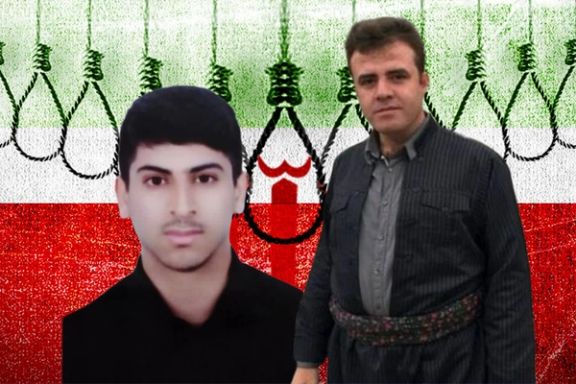
Two more political prisoners, Yousef Ahmadi and Ali Abidavi, have been sentenced to death amid Iran's ongoing killing spree.

Two more political prisoners, Yousef Ahmadi and Ali Abidavi, have been sentenced to death amid Iran's ongoing killing spree.
The two are the latest victims of the government's crackdown on dissent following a record year in 2023 seeing 834 executions according to the United Nations, eight linked to the nationwide protests which began in 2022.
Ahmadi, originally sentenced in September by the Revolutionary Court of Sanandaj on charges of "corruption," saw his appeal denied, while Abidavi, along with his brother Hossein, received their verdict from the Revolutionary Court of Mahshahr.
Ahmadi, along with co-defendants Mohammad Karimi, Baset Karimi, and Mohammad Feizi, were arrested in May 2020 in Baneh, Kordestan province, under accusations of collaborating with an opposition party. Reports indicate they were subjected to severe torture to extract confessions, which led to Ahmadi's death sentence and varying prison terms for the others.
Simultaneously, Ali and Hossein Abidavi faced the judiciary in Mahshahr, accused of attacking a Basij base four years ago. Ali Abidavi received the death penalty, while his brother was sentenced to 13 years behind bars.
This week, the UN's experts slammed the execution of Mohammad Ghobadlou, a 23-year-old protester with a long-term psychosocial disability.
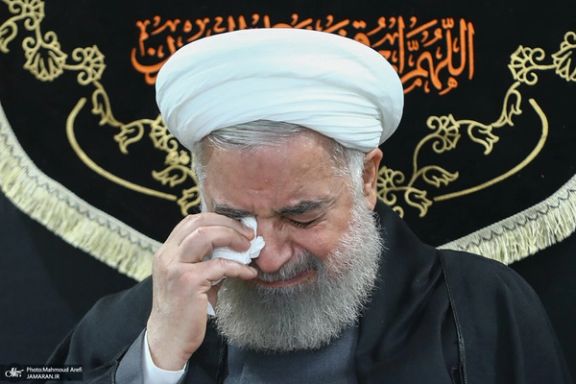
A day after former president Hassan Rouhani was barred from running in the upcoming March 1 election, the Iranian public remained indifferent to his situation.
Iranian hardliners controlling a conspicuous vetting mechanism told the former president that he was barred for running for re-election at Assembly of experts that will elect the next Supreme Leader after Ali Khamenei’s death.
Most Iranian analysts attributed the indifference to Rouhani's political positions and performance during his presidency, especially in his second term from 2017-2021.
Iranian social media researcher Mohammad Rahbari has found that based on Google Trends metrics application, during the past day, the majority of Iran-based queries on the Google search engine were related to the execution of 23-year-old political prisoner Mohammad Ghobadlou. The number of searches about Rouhani were significantly less than those about the rising dollar rate, Ghobadlou and even Raisi.
Meanwhile, Iran International TV analyst Mehdi Mahdavi Azad argued that the people could not care less about Rouhani's disqualification as he has disappointed Iranians after over 20 million of them voted for him in 2013 and 2017 by taking side with Khamenei and his hardline supporters.
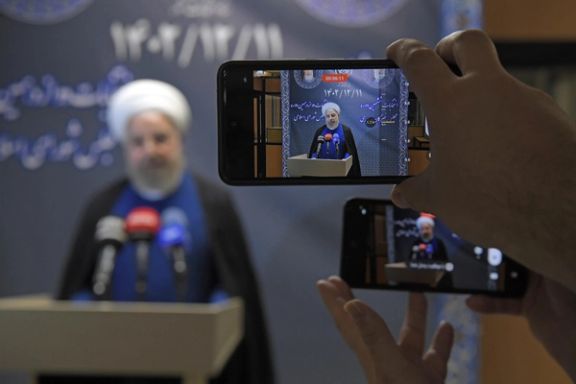
A similar viewpoint was expressed by investigative reporter Mojtaba Pourmohsen in a report on Iran International TV on January 25. Pourmohsen further suggested that Rouhani's disqualification signaled Khamenei's intention to nominate his son, Mojtaba, as the next Supreme Leader.
Ali Hossein Ghazizadeh, another Iran International analyst, attributed the people’s indifference to Rouhani's disqualification to his inability to address to the people's demands during his presidency. Ghazizadeh said that Rouhani led the people to believe that change was impossible in the Islamic Republic, regardless of who was the head of the executive branch of the government. He added that even those who support the regime no longer believe in the possibility of any positive change in Iran by voting in the elections.
Morad Veisi a senior Iran analyst told Iran International TV that the development marks the end of the moderate camp in Iran which was led by Rouhani.
In another analytical comment, Iran-based reformist commentator Abbas Abdi suggested that Rouhani’s disqualification was more about what he could do in the future than about his past actions or inactions. Abdi was likely referring to Rouhani's potential role in determining Iran's next leader at the Assembly of Experts.
Other Iranian analysts questioned what Rouhani had accomplished during his 24 years as a member of the Assembly of Experts, the body tasked with choosing the Islamic Republic's next leader. They also raised concerns about his continued presence within the Assembly, where most members were political rivals or even adversaries.
Rasoul Montajabnia, the Secretary-General of the Reformist Jomhouriat Party, expressed concern that Rouhani's absence could lead to low voter turnout in the upcoming elections on March 1, as even those who had intended to participate might be discouraged after Rouhani's disqualification.
Meanwhile, an adviser to former Expediency Council Chief Akbar Hashemi Rafsanjani, Gholam Ali Rajai said that Rouhani's disqualification will entail other developments. Rajai said that conservative figure and former intelligence operative and Justice Minister Mostafa Pourmohammadi has also been disqualified and barred from taking part as an Assembly of Experts election candidate. He said this was a source for concern, but did not explain why.
Former Intelligence Minister Mahmoud Alavi, another former intelligence chief, was also barred from both Majles and Assembly of Experts elections, leading observers to speculate that political purification might be occurring within Iran's intelligence community.
Some analysts speculated that an unlikely decree by Khamenei could reinstate Rouhani in the Assembly of Experts election, but a defeat in that election would be a significant setback for the former President.
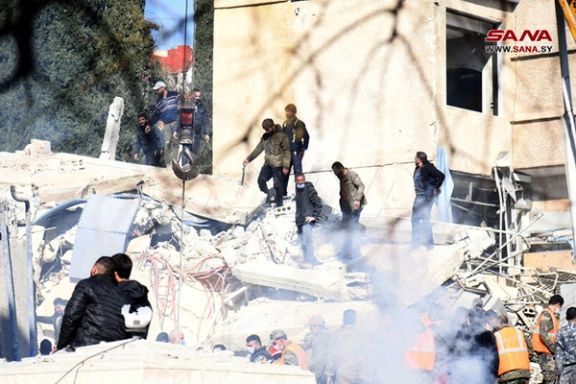
An Iranian MP says Tehran will retaliate against Israel's recent attack that claimed the lives of five Islamic Revolutionary Guard Corps (IRGC) commanders in Syria.
Fadahossein Maleki, a member of the National Security Committee of the Parliament, emphasized on Thursday that “the fact that military commanders exercise prudence does not mean they don’t want to respond.”
The incident occurred on January 20, when a residential building in Damascus's Mazzeh neighborhood was targeted in what Syria's state-run SANA news agency described as an Israeli airstrike. The IRGC confirmed that four personnel initially lost their lives, identified as Hojatollah Omidvar, Ali Aqazadeh, Hossein Mohammadi, and Saeed Karimi. Later, a fifth officer, Mohammad-Amin Samadi, succumbed to injuries sustained in the attack.
The recent assault follows a pattern of Israeli strikes targeting Iranian interests in the region. In December, Razi Mousavi, responsible for logistical and military coordination for the IRGC in Syria, was killed in a similar attack near Damascus.
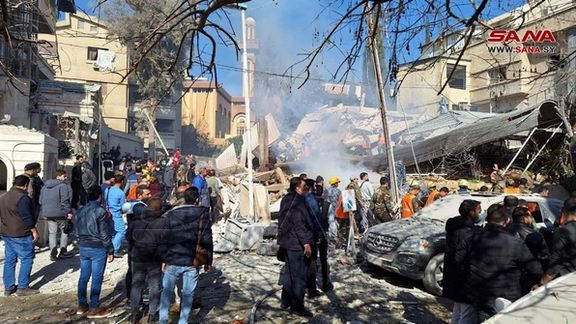
The Iranian government has repeatedly issued threats against Israel, holding it responsible for the deaths of IRGC commanders and personnel in the region. Despite these threats, Tehran has refrained from directly attacking Israel, though continues to support its proxies surrounding Israel. Since October 7 when Iran-backed Hamas in Gaza declared war on Israel, support from the likes of the Iran-backed Houthis in Yemen and Hezbollah in Lebanon swiftly followed.
Israel, while refraining from commenting on specific strikes, has acknowledged conducting numerous sorties against Iran-backed forces and facilities in Syria over the past decade. The recent escalation coincides with heightened tensions stemming from the Israel-Hamas conflict that erupted in October.
Israel has been targeting Syria, particularly affecting international airports in Damascus and Aleppo, potentially disrupting the transfer of weapons from Iran to its proxies in Gaza and along Israel's borders. Iran's involvement in supporting Syrian President Bashar al-Assad throughout the 12-year civil war has led to a significant deployment of Iranian fighters, with many members of the Revolutionary Guard being killed in the conflict.
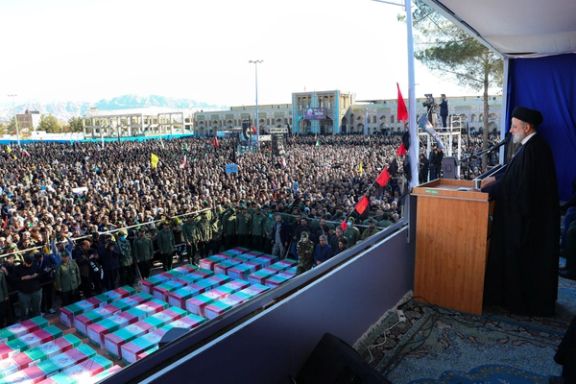
US officials confirmed to Iran International that they warned Iran of the impending double bombing which killed 95 civilians in Kerman earlier this month.
Separately, Iran International has learned that the US passed the warning to Iran more than one week before the Kerman attack.
Speaking to Iran International, a US official said, "Prior to ISIS’ terrorist attack on January 3, 2024, in Kerman, Iran, the U.S. Government provided Iran with a private warning that there was a terrorist threat within Iranian borders. The U.S. Government followed a longstanding “duty to warn” policy that has been implemented across administrations to warn governments against potential lethal threats. We provide these warnings in part because we do not want to see innocent lives lost in terror attacks."
In spite of the warning that Islamic State’s affiliate in Afghanistan, ISIS-Khorasan, known as ISIS-K, planned to commit the attacks at the commemoration ceremony of slain Qods Force commander Qassem Soleimani, Iran failed to prevent the attacks, the Wall Street Journal first broke the news.
According to the US newspaper, American officials said the information passed to Iran was specific enough about the location and sufficiently timely that it could have prevented the mass killings on January 3.
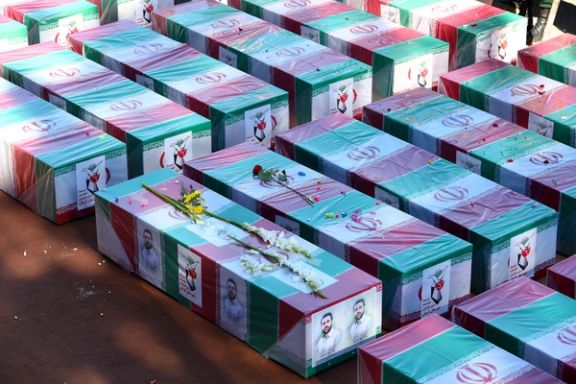
The attack was the deadliest since the birth of the Islamic Republic in 1979. Many Iranians questioned why Soleimani's family members and top officials were absent from the memorial at his gravesite in Kerman on January 3. The US warning could explain their absence.
The duty to warn will raise questions for many, when Iran’s proxies have been directly targeting US facilities and troops in more than 150 attacks since October 7 alone, following the Hamas invasion of Israel.
Proxies in Syria, Iraq and Yemen have said the US support for Israel’s right to defend itself in the wake of the Iran-backed Hamas massacre has made it a target alongside the Jewish state.
While Iran continues to develop its nuclear program and contravenes international laws, as well as arming Russia in its war against Ukraine, many will question the motives of the Biden administration in forewarning a global enemy.
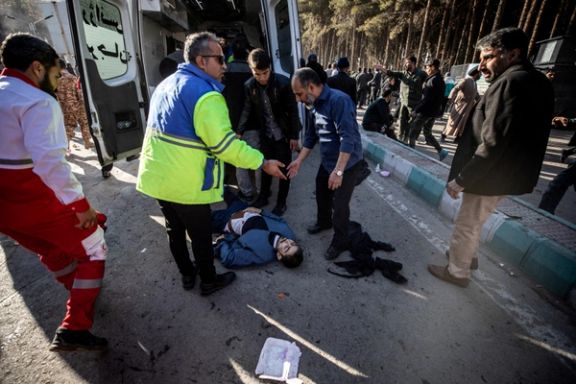
Moreover, Iranian officials blamed the United States and Israel for the ISIS attacks, reiterating their long-standing position that the US has created ISIS.
Last year, the US cut a deal with Tehran to release five US-Iranian citizens unlawfully detained in Iran in return for the unfreezing of $6bn in Iranian money held in South Korea.
Former CIA officer Douglas London told the Wall Street Journal that the decision to tip off Iran was likely made by senior officials at the White House and CIA. Such intelligence sharing may well be part of the Biden administration’s policy to bring its adversary closer rather than imposing heavy penalties such as designating Iran’s Revolutionary Guard Corps.
It is unknown if the tip-off was through direct or indirect channels, but is likely to have involved a third party, like the negotiations for last year’s hostage release.
The revelations of the tip-off will be hard to hear for the regime’s hard-liners who see the US as an adversary alongside Israel, its archenemy.
Speaking to WSJ, Alex Vatanka, director of the Iran program at the Middle East Institute, said that the ISIS-K attack was a humiliating setback for Tehran, whose mighty proxies reign terror across the Middle East and take billions of dollars of funding from Tehran annually, at the cost of its own people.
“ISIS operatives were able to come in and attack in the birthplace of Soleimani,” Vatanka said, a symbolic location commemorating the death of the man who oversaw all Iran's proxy operations abroad.
Since the US withdrawal of 2021, Afghanistan-based ISIS-K has grown in strength. US officials say it is one of the most dangerous groups in the region, eclipsing al Qaeda, with ambitions to strike targets in the West.
Vatanka added: “The headlines wrote themselves: the Islamic Republic cannot protect the Iranian homeland.”
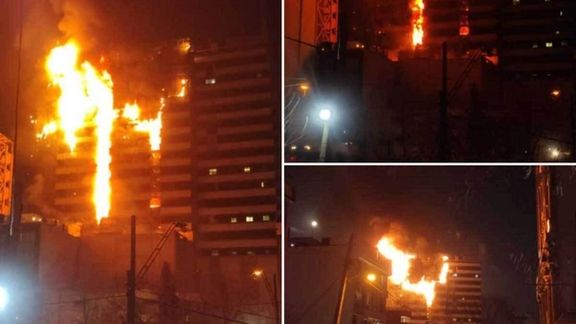
A huge fire broke out at a hospital in Iran's capital Tehran on Thursday, with Iran's Health Ministry spokesman claiming that no one is injured.
There were no immediate reports of casualties or the cause of incident, with an official saying the blaze had engulfed the building's exterior facade.
State TV said the area around the Gandhi Hospital in northern Tehran has been cordoned off and the hospital was being evacuated.
Pedram Pak-Ayin, the spokesperson for the Health Ministry, said that "none" of the workers and patients at Gandhi Hospital have been harmed.
He added that the cause of the fire is not clear and added, "The patients of Gandhi Hospital are being transferred to other medical centers."
According to Deputy Health Minister Saeed Karimi, 80 patients have been transferred from Gandhi Hospital to surrounding medical centers.
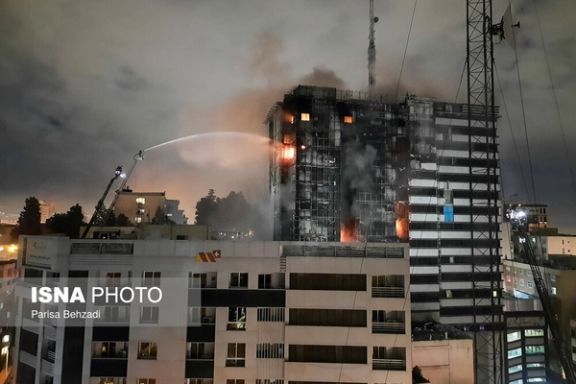
Tehran Fire Department spokesperson Jalal Malaki said the fire started at 1900 local time (1530 GMT) and firefighters had been dispatched to the area.
"Initial reports indicate that the fire primarily affected the exterior of the hospital building," Maleki told state TV.
According to information from the Gandhi Hospital website, the complex has 100 beds, 17 operating rooms, and 100 residential suites.
No exact information has been released about the number of patients and other people inside the hospital at the time of the fire.

Recruitment of clerics as teachers and new legislation allowing mosques to run private schools has fueled concerns about the future of Iran's educational system.
In a statement published on its Telegram channel on January 18, the Coordination Council of Iranian Teachers’ Unions strongly criticized the employment of clerics as teachers by the education ministry.
The statement alleged that this meant “purging schools” from expert teaching staff and replacing them with clerics and seminary students who have no expertise in child education, or a standard education. The teachers’ union called the decision a “reactionary move” that resurrects the concept of schools run by the clergy (maktab), which were abolished nearly a hundred years ago. The ministry has denied a nationwide purge is underway.
However, hardliners controlling the parliament and the executive branch have been also purging university faculties and openly speak about “purification.”
The powerful Shiite clergy in Iran lost its monopoly on education and the justice system with the establishment of modern courts and schools by the founder of the Pahlavi Dynasty, Reza Shah, in the 1920s who fundamentally curbed their powers.
The council also warned Iranian families about the consequences of “the systematic presence of clergy in schools and its dangers to children.”
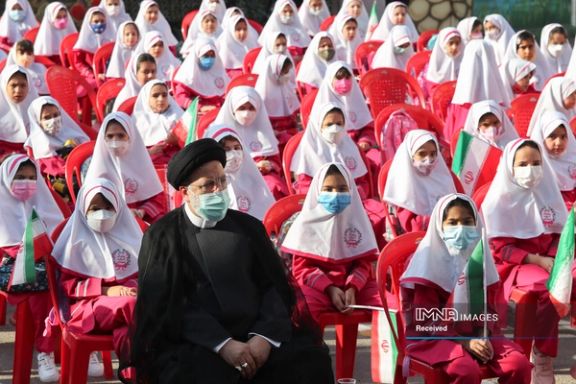
The ministry has expelled scores of teachers and forced many others to retire early for supporting last year’s protests, instead hiring 3,500 clerics and seminarians as teachers to fill some of the tens of thousands of new positions it has created to overcome the shortage of teaching staff.
Ali Farhadi, the ministry’s spokesman, has claimed that the ministry only became aware of the recruitment after the fact. “We, too, found out that these individuals had been accepted [for the positions] after the examinations [of candidates for teaching positions] were held,” he claimed. However, regime-controlled media have been talking about the subject for months, saying that clerics should become schoolteachers.
The clergy have been running unofficial schools for over a decade but last week the establishment of “mosque-centered schools” was given official status when lawmakers hastily approved a proposal to oblige the ministry of education to issue licenses to persons and legal entities to establish private schools attached to mosques if building requirements were met.
In a report entitled “Autonomous Schools” Monday, the reformist Ham-Mihan newspaper said there are around 150 so-called “mosque-centered” schools with around 7,000 students now that operate unofficially.
An administrator of a “mosque-centered” school for girls told Ham-Mihan that their curriculum included homemaking, sewing, cooking and traditional medicine as well as computers and mobile photography to their students. They also selected and screened their own teachers, he said, but could not issue any kind of certificates under the current circumstances.
Former Minister of Education Mohsen Haji Mirzaei told Ham-Mihan that mosque-centered schools are "a rebellion against the official educational system" and warned that they could “delegitimize” the formal education system and foster extremist beliefs.
Speaking to the conservative Farhikhtegan newspaper, Rezvan Hakimzadeh, former Deputy Minister of Education, also expressed concern about the curriculum of these schools. “Who will supervise how the curriculum is replaced if the official one is to be disregarded? Who will approve of its suitability?” he asked.
Other critics such as another former education minister, Ali-Asghar Fani, have warned that the education ministry may fail to supervise these schools due to the political influence of the imams of the mosques to which they are attached.
Lawmakers supporting the legislation such as Ahmad-Hossein Fallahi, spokesman of the Education, Research and Technology committee, argue that schools attached to mosques can answer the dire need for more educational facilities, but claim the education ministry will have control over the curriculum of these schools.
An organization calling itself ‘Mosque-Centered Schools Headquarters’, says on its website that those behind the drive aim to “fulfil the heavy task of training and preparing an efficient revolutionary workforce” to meet the need for “human resources worthy of the Islamic Revolution.”
The organization’s secretary, Hossein-Ali Deylam, told Ham-Mihan that establishment of schools attached to mosques started in the religious city of Mashhad twelve years ago. He claimed that the number of these schools has grown since then due to the great demand from families who want their children to study in these schools, most of which are at the primary level.
“From the start, these schools have not been under the supervision of education ministry … Each school determines its tuition fees based on its activities and specifications,” he said without elaboration on their curriculum.